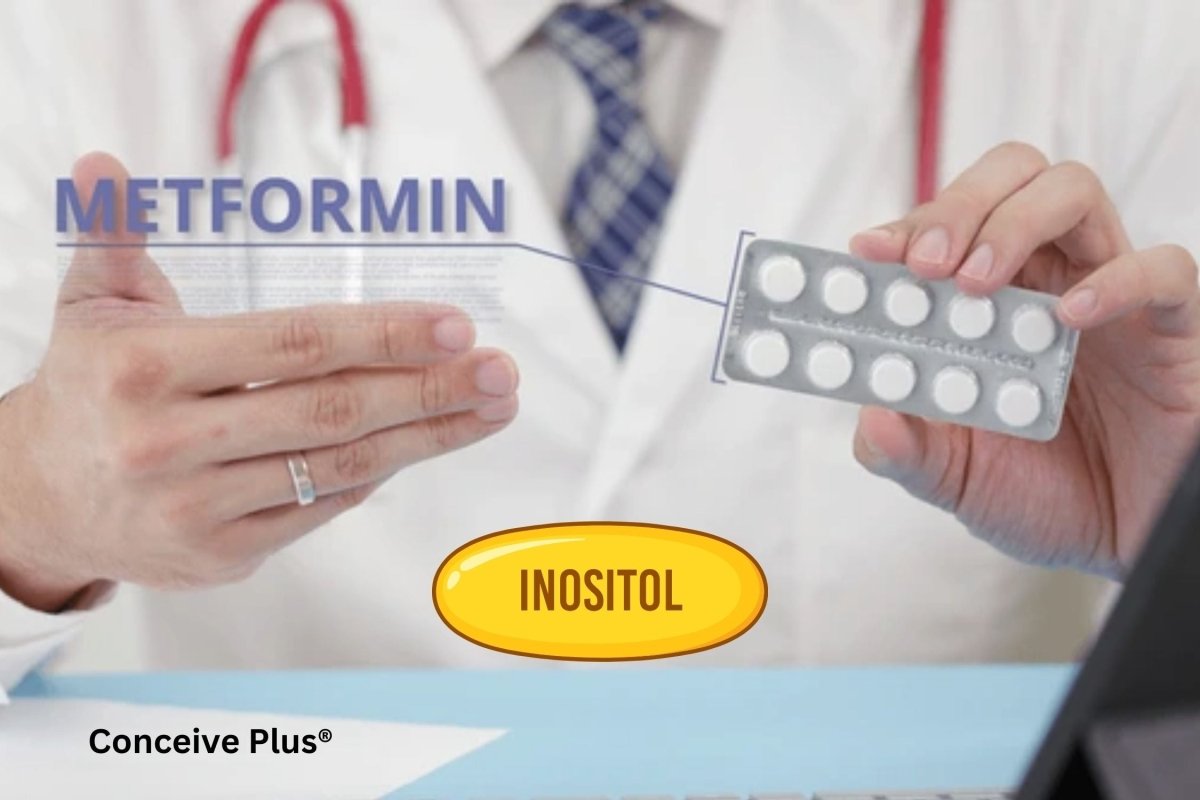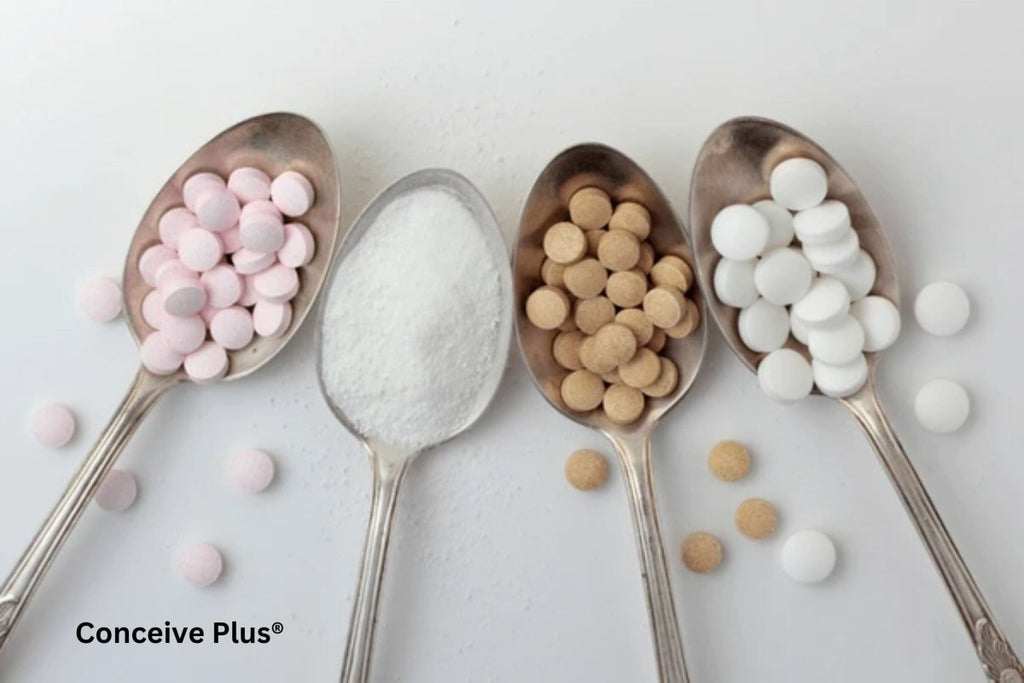Inositol and Metformin: A Thoughtful Approach to Balancing Health

Inositol and metformin often appear together in discussions about metabolic balance and overall well-being. Whether individuals are exploring natural supplements or established pharmaceutical options, both substances can play distinct yet complementary roles in supporting healthy glucose metabolism and hormonal function. Many people seek guidance on how these agents might fit into a broader wellness plan, particularly if they are aiming to address concerns related to insulin sensitivity or reproductive health. By understanding their mechanisms, benefits, and potential interactions, you can make informed decisions under the guidance of a healthcare professional.
Key Distinctions
In comparing inositol vs metformin, it helps to recognize that inositol is a naturally occurring sugar alcohol found in various foods, whereas metformin is a prescription medication commonly used to help regulate blood sugar. Although both can support healthier metabolic function, they do so through different processes. Inositol often serves as a supplement to promote hormonal balance, especially in contexts where insulin plays a role. Metformin, on the other hand, is specifically designed to reduce glucose production in the liver and enhance insulin sensitivity in the body [1].
For additional details on how various inositol types support your overall metabolic balance, consider reading our guide to the most important inositol types for health.
Mechanisms at Work
Inositol influences cellular signaling pathways associated with insulin. By supporting communication between hormones and receptors, it may contribute to balanced metabolic responses. Meanwhile, metformin lowers hepatic glucose output and increases peripheral tissue sensitivity to insulin. This dual approach helps stabilize blood sugar levels, reducing excess circulation of glucose. Although each agent targets insulin functionality, the pathways differ enough that combining them might provide complementary benefits. Still, such a strategy should be guided by professional advice to ensure that dosage, timing, and overall health factors are considered.
Potential Advantages
Some individuals seek inositol for hormone balance, especially in circumstances that involve metabolic or reproductive factors. Metformin remains a standard option for those who need assistance controlling blood sugar fluctuations. Though separate in origin, both might bolster energy levels and promote healthier weight trends when used appropriately. In addition, they can support stable insulin action and help reduce some undesirable symptoms linked to metabolic challenges. The degree of improvement differs among individuals, making personalized evaluation crucial. Careful integration under professional supervision can yield promising outcomes for select cases and consistency [2].
Guidance on Usage
Incorporating either compound should involve a discussion with a qualified healthcare professional. Dosing for inositol may range from small daily amounts to more substantial servings, depending on individual needs. Metformin typically follows physician-directed protocols tied to blood glucose monitoring. Even if combining these agents, ongoing evaluation is critical to avoid potential interactions. Monitoring changes in energy, mood, and body composition can help reveal whether adjustments are necessary. Lifestyle factors, such as diet and exercise, can further complement supplementation or medication, reinforcing stable metabolic processes. This fosters safer, more effective outcomes [3].
For more on how myo inositol pcos supports natural hormonal balance, check out our detailed guide "The Myo Inositol PCOS Link: A Natural Tool for Hormonal Regulation."
Lifestyle and Monitoring
Ensuring long-term benefits involves more than taking a supplement or medication. Balanced meals, regular physical activity, and sufficient sleep all enhance insulin function. Periodic blood tests or check-ins can capture changes in glucose tolerance, helping guide any needed adjustments. Staying aware of bodily cues, such as shifts in appetite or energy, supports proactive management. While inositol and metformin may help stabilize metabolic responses, these measures work best when combined with an overall healthy lifestyle. A consistent commitment to wellness ultimately fosters sustainable progress and reduces potential setbacks and improved resilience [4].
The Bottom Line
Inositol and metformin remain prominent considerations for individuals seeking better metabolic and hormonal balance. Although they function differently, both can bring meaningful support when guided by medical expertise and combined with healthy habits. By staying informed, monitoring changes, and making thoughtful adjustments, you can harness the potential benefits of each approach in your own wellness journey for lasting positive outcomes.
References
- Ravn P, Gram F, Andersen MS, Glintborg D. Myoinositol vs. Metformin in Women with Polycystic Ovary Syndrome: A Randomized Controlled Clinical Trial. Metabolites. 2022 Nov 26;12(12):1183. doi: 10.3390/metabo12121183. PMID: 36557221; PMCID: PMC9786218.
- Nazirudeen R, Sridhar S, Priyanka R, Sumathi B, Natarajan V, Subbiah E, Raghavan KS, Sangumani J. A randomized controlled trial comparing myoinositol with metformin versus metformin monotherapy in polycystic ovary syndrome. Clin Endocrinol (Oxf). 2023 Aug;99(2):198-205. doi: 10.1111/cen.14931. Epub 2023 Jun 2. PMID: 37265016.
- Corcoran C, Jacobs TF. Metformin. [Updated 2023 Aug 17]. In: StatPearls [Internet]. Treasure Island (FL): StatPearls Publishing; 2025 Jan-. Available from: https://www.ncbi.nlm.nih.gov/books/NBK518983/
- Wierzejska RE. Dietary Supplements-For Whom? The Current State of Knowledge about the Health Effects of Selected Supplement Use. Int J Environ Res Public Health. 2021 Aug 24;18(17):8897. doi: 10.3390/ijerph18178897. PMID: 34501487; PMCID: PMC8431076.
























